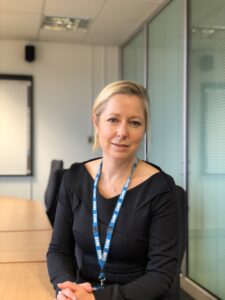Recovery bulletin – Issue 03 – November 2022
Introduction – the role of primary care in supporting elective recovery
Dr Paula Cowan MBChB LRCSPI DFFP DRCOG MRCGP – Regional clinical director for primary care, NHS England North West
I am delighted to pen the introduction to the 3rd edition of the North West Regional Recovery Bulletin, bringing a flavour of the work of primary care in supporting elective recovery and the restoration of services across the region.
General practice, alongside pharmacy, dentistry and optometry work to deliver primary are services together with many new additional roles, supporting and ensuring the most appropriate care is given to our populations to meet their clinical and care needs.
Every day more than one million people have an appointment in general practice and 90% of health care is delivered in primary care.
The Covid pandemic has seen a significant change in how primary care services are both accessed and delivered. The imposition of lockdown restrictions in March 2020 brought a need for new and innovative ways to ensure that ongoing delivery and while it may look different, and to many it may feel different, the work across primary care has continued and increased considerably. In May this year for example, there were an estimated 27.5 million appointments in general practice, over two million more than in 2019; and according to the latest NHS Digital data, September 2022 saw the highest proportion of face-to-face appointments since before the pandemic.
Harnessing that innovation witnessed through the pandemic and using it to widen the breadth of delivery across primary care is how we are moving forward in 2022. The development of Primary Care Networks, practices working together with neighbourhood teams, has been evolving since 2019. Moving away from the very traditional model of general practice and using digital technologies such as shared electronic patient records, virtual and telephone consultations, coupled with face-to-face appointments, and alongside additional clinical and non-clinical roles, has enabled a wider and truer multidisciplinary team approach to how we support our populations.
The Fuller Stocktake of general practice, published in spring of this year highlighted these areas of focus and we as a region, having established the North West Primary Care Transformation Board, are working with our systems and places on strategies to develop these further.
Demand across our systems in every aspect of the health and care sphere has risen and primary care is no exception. Despite this, there is a determination to support our systems and restore services; and to that end reviews and chronic disease management which the pandemic halted, are now being undertaken. Alongside that is the need to continually assess urgent on the day demand, new presentations, and suspected cancer referrals.
Using the newly emerging community diagnostic centres and encouraging more pre-referral investigation is being actively supported. FIT testing is being rolled out across the region to help manage cancer two-week referrals and tele-dermatology is also being developed.
Supporting personalised care and self-management, putting our patients at the centre of what we do lies at the heart of several projects including home blood pressure monitoring and atrial fibrillation diagnosis. This enables people to take control and be active in their own management. It also supports pre-habilitation, ensuring that patients awaiting elective surgery are at their most fit for their procedure with improved recovery time. This also helps to reduce on the day cancellations, reducing the backlog of patients awaiting surgery.
Furthermore, we are also working with community acute response teams and the NHS@Home service, to support and manage patients at home, aiming to reduce hospital admissions and facilitate earlier discharge.
Unfortunately, we have seen a dramatic rise in mental health issues and presentations across all age ranges and the impact of the economic downturn and cost of living crisis is taking its toll. The additional roles reimbursement scheme (ARRS) has supported the development of the mental health practitioner and social prescriber roles in primary care; truly invaluable members of the primary care team in supporting patients.
While Covid has not resolved fully and as winter approaches, we are seeing increasing numbers along with more flu presentations, we are working across primary care to encourage the uptake of both flu and Covid vaccinations.
Weaved throughout our systems and not just primary care is the ongoing and increasing need to address health and care inequalities. The pandemic shone a significant light on this and now using the underlying principles of Core 20+5 we are collectively working to tackle this. The delivery of health is the tip of the iceberg; the need to address and support the wider determinants of health, to work with the shared purpose and ethos of true integration is our aim, so that we can eliminate the question “why do we fix people and send them back to the situation which created the problem in the first place”
While access to primary care, in particular general practice and dentistry, has been highlighted in the media, we cannot avoid the recognition that workforce issues and rising demand, coupled with increased complexity of an ageing population have contributed to this.
However, we understand the challenges and are actively working to tackle them, to have honest and transparent conversations with our populations to support an understanding of primary care in 2022 and its vision going forward.
Content:
- What do you know about virtual wards?
- Additional TIF support secured for North West schemes
- Cheshire and Merseyside progress on cancer diagnosis waiting lists
- Virtual ward service for respiratory patients across Merseyside
- Update on outpatient transformation
- Improving Ophthalmology care in Greater Manchester
- Regional diagnostics update
- People promise – best practice examples

